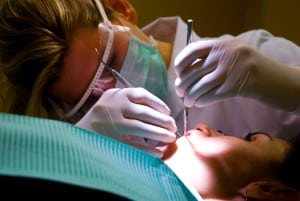 From simple extractions to the more exhaustive surgery associated with the dental implant procedure, the key to any surgery is following your dentist’s post-procedure direction. The better patients adhere to their “doctor’s orders,” the more successful their surgery will be in the long run — and the briefer their recovery time in the short run.
From simple extractions to the more exhaustive surgery associated with the dental implant procedure, the key to any surgery is following your dentist’s post-procedure direction. The better patients adhere to their “doctor’s orders,” the more successful their surgery will be in the long run — and the briefer their recovery time in the short run.
Your dentist will offer specific instructions for your particular surgery, but there are a few straightforward common sense pieces of advice we can offer. The first is also the easiest for most people to follow: rest up! Your body needs time to heal after any surgical procedure, and oral surgery is no exception. Unfortunately, many patients actually prolong their recovery time by returning to their regular schedule of work and other activities before their body has had the chance to fully heal.
Next, if your dentist has prescribed painkillers for post-procedure pain, and you’ve got discomfort, don’t fight through it — take the medicine, and take it in the doses you’ve been prescribed and at the intervals your dentist recommends. If you take medication for other conditions, tell your dentist so they can ensure there are no adverse interactions between multiple drugs. And unless you’re instructed otherwise, avoid aspirin; it acts as a blood thinner and can prolong bleeding.
Finally, when/if your dentist tells you it’s time to start brushing and flossing again after your oral surgery, take it slow and gentle at first, particularly in the area that was operated upon. If you can’t brush, rinse with warm salt water until your mouth has had a chance to heal, then it’s back on the brushing and flossing routine!
Again, following your dentist’s direction can help make your post-surgery recovery an easier experience; consult your dentist for more specific information related to your oral surgery.
